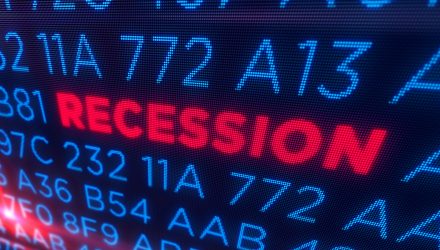While it has been referred to as such for many months already, according to the National Bureau of Economic Research, the most dramatic U.S. downturn since the Great Depression is now officially deemed a recession.
Though it seemed inevitable, the NBER, the official adjudicator of recessions, noted that the economic downturn was clearly a recession on Monday, as the nation now struggles to recover from the coronavirus pandemic, with the S&P 500 is already nearly breakeven on the year.
While many investors and analysts observed it in realtime, in making the declaration, the committee found that a “clear peak in monthly economic activity” happened in February. The peak in quarterly activity occurred in Q4 of 2019.
A recession had been generally recognized as two consecutive quarters of economic decline, as reflected by GDP in conjunction with monthly indicators such as a climb in unemployment, which we clearly saw approaching Depression-era levels in this pandemic-spurred recession.
However, the National Bureau of Economic Research (NBER) changed its definition and noted that “a significant decline in economic activity spread across the economy, normally visible in production, employment, and other indicators. A recession begins when the economy reaches a peak of economic activity and ends when the economy reaches its trough.”
U.S. GDP sank 5% in the first quarter and is likely to notch the worst decline in history for the second quarter, as much as 50% or more.
The recession culminates the largest expansion in U.S. history, which the NBER dated as lasting 128 months, or nearly 11 years, cut short abruptly by the coronavirus pandemic, and subsequent economic fallout, which shuttered stores and businesses for months in an attempt to curb the transmission of the virus.
With stock market action often predicting the future of economies, many economists now feel the contraction will finish in the second quarter, putting an end to the recession as well. Goldman Sachs chief economist Jan Hatzius said that while this is “almost certainly the deepest recession since” the war, “it is almost certainly also the shortest recession.” Hatzius pointed out, no recession has lasted less than six months, dating back to the mid-1800s.
The stock market rocketed higher Friday following the unemployment report as the Dow Jones Industrial Average exploded over 900 points or 3.5%, the S&P 500 rallied an impressive 2.8%, and the Nasdaq climbed 2.15%, reaching fresh all-time highs intraday.
Markets are building on that optimism Monday, as stocks breach Friday’s highs, and the SPDR S&P 500 ETF Trust (SPY), SPDR Dow Jones Industrial Average ETF (DIA), and the Invesco QQQ Trust (QQQ) all show gains as well.
For more market trends, visit ETF Trends.
